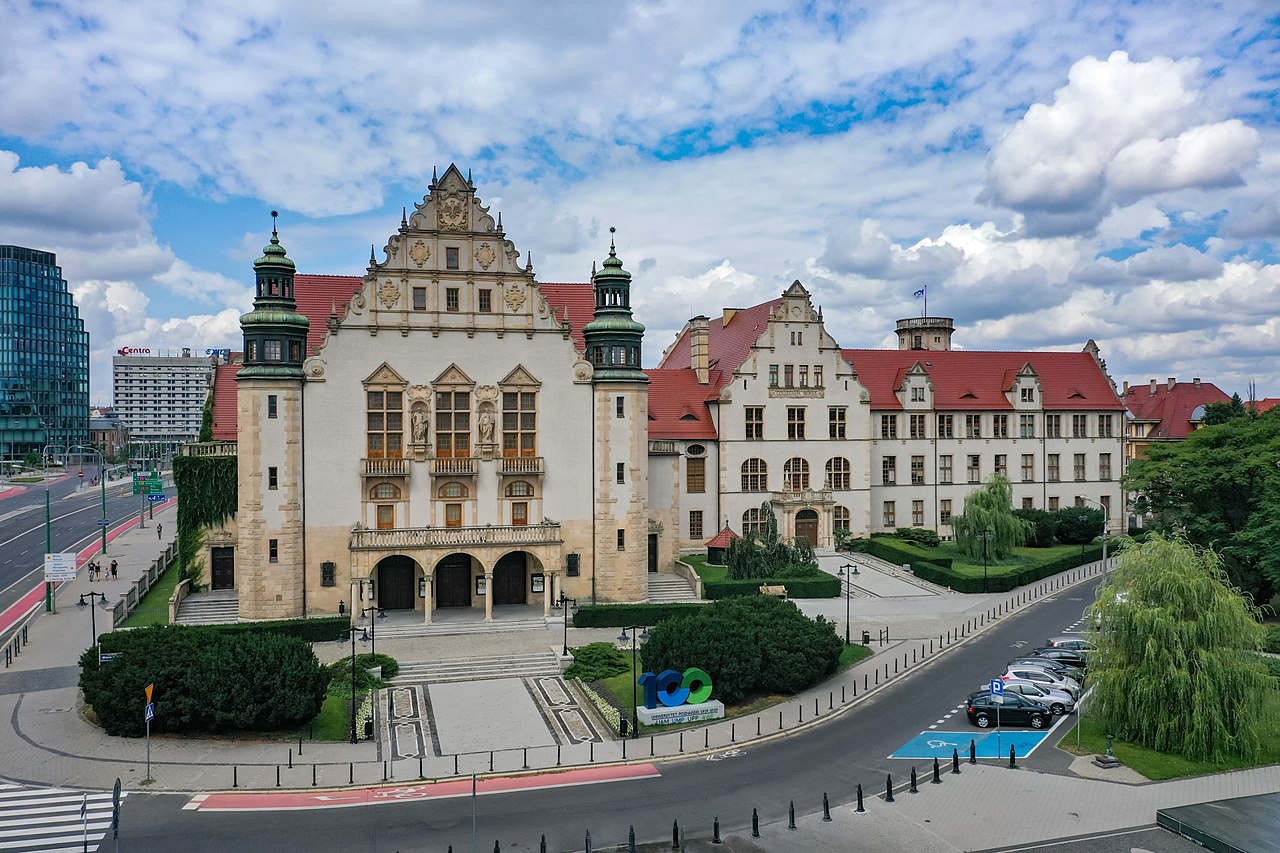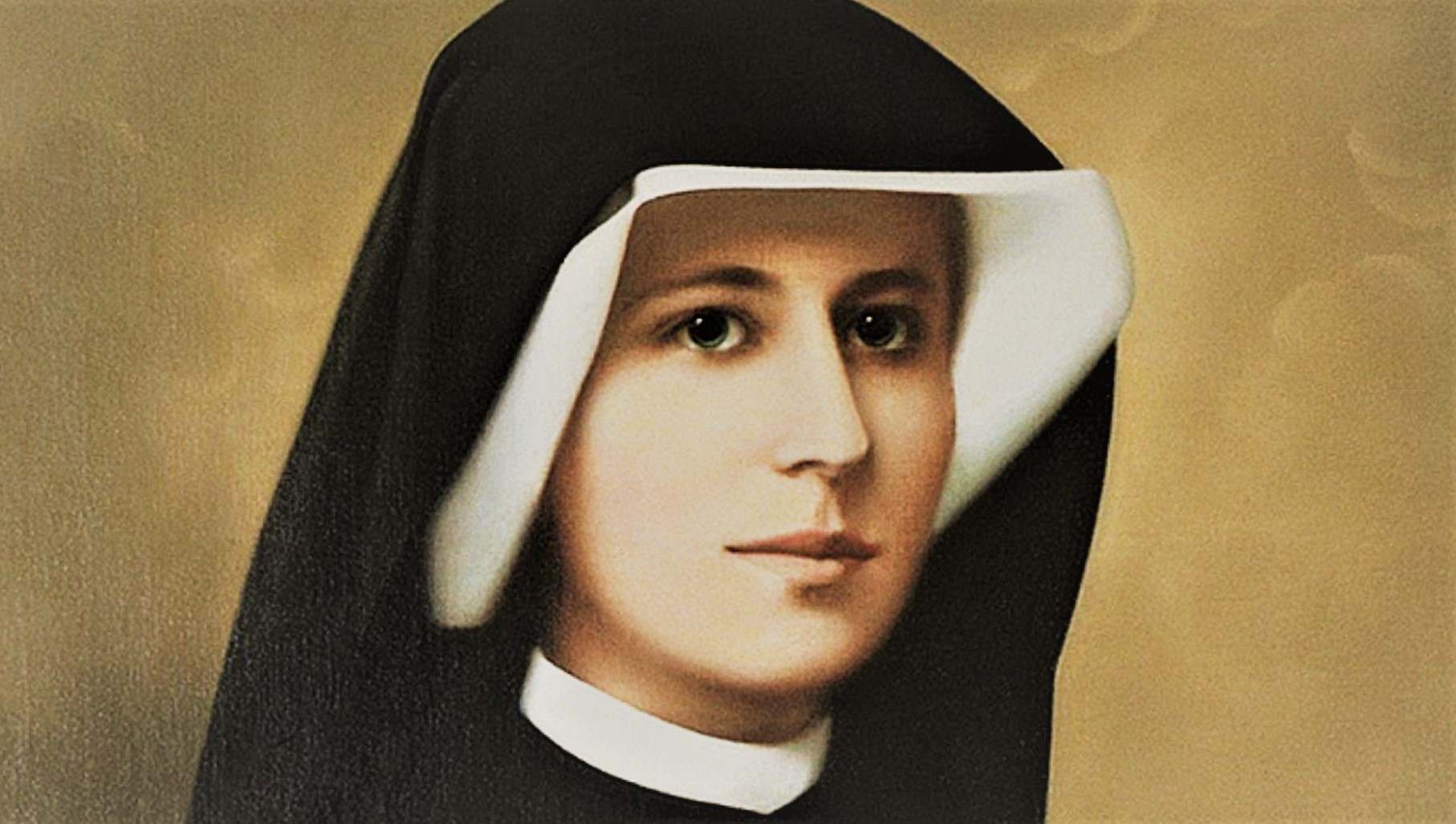On 21-27 August, 2022, the 23rd International Congress of Historical Sciences will be held in Poznań. This is the largest and most prestigious meeting of historians, during which they present the results of their research and discuss the most pressing issues of world historiography. Krzysztof A. Makowski, the initiator and one of the organizers of the Congress, and Vice-President of the International Committee of Historical Sciences (CISH), talks about the Polish contribution to this event and the preparations for next year’s meeting.
Natalia Pochroń, MHP: Speaking of the 23rd International Congress of Historical Sciences, which will be held next year in Poznań, it is impossible not to refer to the 7th Congress, which took place in Warsaw in 1933. How did the Polish state, shortly after regaining independence and in an economic crisis, manage the organization of such a large event?
Krzysztof A. Makowski: In short, it did very well. The economic crisis made it difficult for the organizers to work, but support from the state, primarily the Ministry of Religious Denominations and Public Education, which significantly co-financed the Congress, played a significant role. As I looked through its budget, I was amazed to discover that not only was there cash flow, but there was a small surplus on the final accounts! And nobody spared expense to the organization of the Congress – apart from lectures, there were also various banquets, parties, receptions, and a wide range of accompanying events. It can therefore be said that the organizing committee met the challenge and did extremely well – and such was the reception of the Congress by foreign historians. Even though only fifteen years had passed since the rebirth of the state after more than a hundred years of partitions, apart from one small exception, no one complained about infrastructure or logistical issues, on the contrary – in terms of organization, the Congress received an extremely positive reception, which should also be considered as a success for the Polish state.
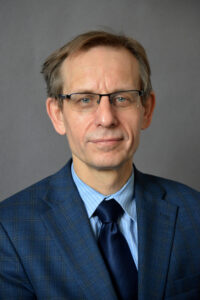
MHP: And in terms of content? On what level was Polish historiography at that time?
Krzysztof A. Makowski: It was on a very high level. I do not hesitate to say that in the interwar period, Polish historiography was among the ten best historiographies in the world. It suffices to reach for reports and accounts published in journals and the press – not only Polish, but also foreign. In most of them, the Congress was highly rated not only in terms of organization, but also content. The historians of that time, with some surprise and fascination, discovered Polish historiography, previously little known to a wider audience. The organization of the International Congress of Historical Sciences in Warsaw was a great opportunity – and was used to its full potential.
MHP: How did that Congress influence the development of Polish historiography?
Krzysztof A. Makowski: It was a unique opportunity for Polish historians to participate in a “professional” event on a global scale. The amount of women who participated in the Congress is impressive – not from today’s perspective, of course, but in relation to a century ago.
Equally important for Polish historiography was the fact that from 1928 the Vice-President of the CISH was Professor Bronisław Dembiński. The organization of the Congress in Warsaw and its reception contributed to its election for another term, after which (in 1938) Professor Marceli Handelsman was elected to the Board.
MHP: Two Poles in the governing body (Board) of an international association of historians – is that a lot?
Krzysztof A. Makowski: Well, if we take into account the fact that after the Second World War, until 2015, apart from Professor Aleksander Gieysztor, who was even the President of the CISH in 1980-1985, no other Pole was present in the Board, then it takes on a different meaning. Certainly, the organization of the Congress in Warsaw sealed the promotion of Polish historiography to the premier league of world historiography.
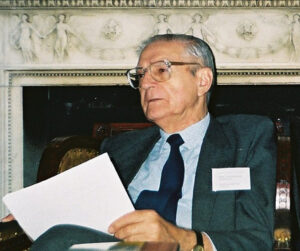
MHP: After the Second World War, Polish historians had very little contact with the international academic community. It was only in 1980, as already mentioned, that Aleksander Gieysztor was elected President of the CISH. Did the Polish historical community make any efforts to organize a world congress in Poland at that time?
Krzysztof A. Makowski: I also wondered about that. I even conducted research on this once and I must admit that I did not find any mention of it. None of my older colleagues whom I asked about it had heard of such an initiative. Even during the Congress in Stuttgart, which took place in 1985 – i.e. at the end of Gieysztor’s term as President of CISH – there was no idea to propose Poland as a candidate.
MHP: Perhaps the reason was that for post-war historians 1933 was not so distant and they did not want to make an effort to organize another congress in such a short time frame?
Krzysztof A. Makowski: It is possible. In addition, there was a custom that these meetings were held in different places – alternately in Europe and beyond. Attempts were made to maintain certain parities, which was also somehow determined by the Cold War narrative.
In addition, the political situation in Poland played a significant role. Economic crises, protests, martial law – all of these created an unfavorable climate for the organization of international meetings. The organization of the congress requires, at least informal consent from the state authorities, which Polish historians could not count on at that time.
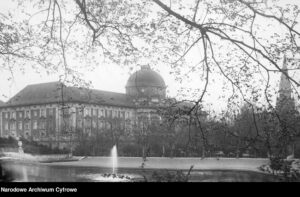
MHP: What did the congresses look like during the Cold War? Did the Iron Curtain somehow influence the topics discussed, determined the directions of the development of historiography?
Krzysztof A. Makowski: One of the greatest achievements of CISH is undoubtedly the fact that it has never allowed for the politicization of congresses. Although its organization in a given country requires the consent of the authorities, these meetings have never been held under their auspices. It also greatly helped to maintain a certain independence and avoid close links with politics. Although, of course, the Cold War was ongoing and political threads were present to a greater or lesser extent. An example is the issue of the aforementioned balance when choosing a place to organize congresses or the equality in force when selecting the composition of the CISH Board – the amount of members from eastern countries were balanced by those from the western side. However, it was not particularly oppressive. I was at the Congress in Stuttgart, which was the last under the Iron Curtain, and the communist demagogy was not particularly present.
As for the Polish experience, the most difficult period of Stalinism for Polish historiography lasted, as we know, relatively briefly, from 1947 to 1956. After the October breakthrough, the situation improved, and Polish historians took part in international congresses without much difficulty. For us, the Cold War left the smallest mark in this aspect. The situation was worse in other countries of the communist bloc where historians traveled to the West very rarely or not at all.
MHP: So far, only four times the congress has been held twice in the same country. What caused Poland to be also in this group?
Krzysztof A. Makowski: Several factors influenced it. The most important thing, I believe, was that we simply prepared our application well. The presentation of Poznań was positively received by the delegates present at the Jinan Congress, mainly due to its professional nature. Of great importance was the fact that it was delivered in English and French – in other words, in two of the three official languages of CISH. We also prepared a stand with promotional materials and an exhibition of Polish postage stamps devoted to history. So far, there has been no such practice at congresses, we were the first, so it was met with great appreciation by those present. The culmination of our activity was, finally, the reception for the members of the Board and the General Assembly of CISH, organized by the Ambassador of the Republic of Poland in Beijing. All these actions brought the desired effect – Poznań won in the first round of voting, leaving Athens and Tampere behind.
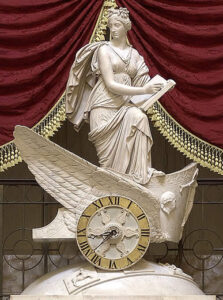
MHP: The motto of the 23rd Congress is the issue of “alternative modernities.” What does this mean?
Krzysztof A. Makowski: As a rule, congresses do not have catch phrases, and the topic of discussion is usually determined by the “major themes” which begin congresses. They show the hottest problems and trends in historiography. However, we have actually included such a leitmotiv in the application. “Alternative modernities” signifies an attempt to change the perspective of historical research, to depart from Eurocentrism – understood as the “monopoly” of the West on shaping knowledge on the past – and anthropocentrism in favor of looking for connections with the world around us, but also to study a human being in a metaphysical sense.
From the very beginning, the essence of the organization of congresses is the response to certain trends that appear in historiography, but also the setting of new ones. For the inauguration of the Congress in Poznań, we plan to seek an answer to the question that is echoing more and more in contemporary academic discussions: Quo vadis historiae? It reflects the search for a new place for historiography in the present postmodern reality, after the postmodernist revolution, which strongly undermined the classical concept of truth and led to extreme subjectivization of historical research. On the one hand, we are witnessing the globalization of science, and on the other hand, an ever stronger attempt to return to the past, to classical historiography. This undoubtedly increases the need to search for a new identity, which – I think – will also find expression during the Congress.
MHP: The Congress creates a unique opportunity to present the achievements of the Polish historiography on the widest possible forum. The Polish historical profession, together with historians from the countries of our region, worked out a topic that was accepted by the CISH Board as one of the “major themes” of the Congress. What is this topic?
Krzysztof A. Makowski: We want to consider the problem of the balance of historical knowledge. The panel will be devoted to the comparison of the place in historiography between the West and the East (and other regions of the world). It is in line with the paradigm shift observed in recent years, the shifting of the “center” and “periphery” of the building our knowledge, the tendency to value these “peripheries” and include them in the mainstream of world historiography.
Apart from that, there are two other major themes. One refers to the aforementioned “alternative modernities” and illustrates the intertwining paths of human and animal history. The second topic is: “memory – archeology – identity” and will be devoted mainly to how the experiences of antiquity were used in building the contemporary identity of nations.
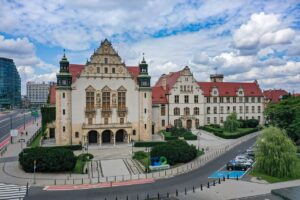
MHP: So far, the congress has only been postponed twice in history – because of both world wars. The congress, which is to be held in Poznań, has been postponed twice. How did the pandemic affect the preparations and shape of this Congress?
Krzysztof A. Makowski: Indeed, so far congresses have been postponed only because of wars, so it is quite a special situation. Of course, this entailed additional obligations – for example it was necessary to verify the submitted panels twice. As it turned out, however, this difficult situation did not greatly affect interest in the Congress. About ten panel organizers withdrew from participation, which is not such a large number when viewed against the total number of over seventy panels. As for the commissions affiliated with CISH – only four of over twenty withdrew, but new ones appeared almost immediately in their place. Interestingly, one of them is the Association of African Historians, which will take part in the Congress for the first time. In the context of the major themes organized by Polish historians and considerations on the shifting of centers for the building of historical knowledge, the participation of African historians acquires a special meaning.
The pandemic accelerated certain processes that were already going on. For the first time in the history of congresses, full IT support will be available, along with internet broadcasting of all congress ceremonies and the three largest symposia (major themes). This will not only improve the course of the Congress, but also – I hope – reach a wider audience.
MHP: Not only virtually – one of the Congress’s assumptions is to go beyond the walls of the university and enter the city space. How are you going to do it?
Krzysztof A. Makowski: This is where the pandemic thwarted our plans the most. We planned to organize at least two trips – to Warsaw and Krakow, we were also considering Gdansk. In the current situation, it will certainly be difficult. However, plans for Poznań itself have not changed much. All libraries, museums, and archives (state and church) have declared their willingness to cooperate in organizing the Congress. Therefore, all participants will be able to access them and learn about the values of Poznań and its scientific and cultural base.
MHP: Who is responsible for the organization of the Congress?
Krzysztof A. Makowski: The formal organizer is the Committee of Historical Sciences of the Polish Academy of Sciences and Adam Mickiewicz University in Poznań, but the main effort of organizing the Congress rests on the university, as the Committee of Historical Sciences has no legal personality. One of the conditions for applying for the organization of the event was the presentation of the consent of the authorities, hence the Organizing Committee includes the deputy mayor of Poznań and the marshal of the Wielkopolska Province, and members of the Polish Historical Society, the director of the Polish History Museum, and, of course, professors from the Faculty of History at Adam Mickiewicz University in Poznań.
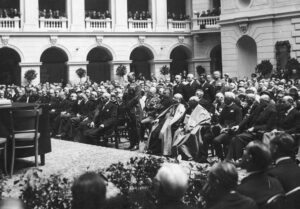
MHP: The 7th Congress in Warsaw took place fifteen years after regaining independence, the 23rd will take place just over thirty years after the political transformation and regaining independence after years of dependence on the Soviet Union. What opportunities does the organization of the Congress entail for the development of historical sciences in Poland?
Krzysztof A. Makowski: In my opinion, very many. Unfortunately, it is impossible not to notice that the condition of Polish historiography is not as high as it used to be. We recall the figure of Professor Gieysztor – he was on the Board of CISH for twenty years. I had the opportunity to listen to his speech at the inauguration of the Stuttgart Congress in 1985 – the way he delivered his speech fluently, in several languages - was undoubtedly impressive. Even though these were difficult times for Polish science, the Polish delegation to the Congress was quite numerous. In following years, the participation of Poles in congresses began to decline. It is also not without significance that, after Gieysztor, no Pole was elected to the CISH Board for a long time: I am the first one after a long break. This long break is a certain symbol of the decline in the importance of Polish historiography.
It is also disturbing that in recent years there has been a noticeable process of particularizing and provincialising historical research – limiting itself to the national academic community. It brings us closer to the 19th-century shape of Polish historiography. At that time, however, the reasons that we were primarily dealing with the “Polish issue” were fully justified. Today it is a kind of escape – from responsibility, and from confrontation on a wider forum. Despite these pessimistic premises, I am hopeful; despite the difficult situation, interest in the Congress remains high. I hope that organizing it in Poland will, however, trigger some impulse and stimulate our profession to deeper self-reflection.
Interviewer: Natalia Pochroń
Translation: Alicja Rose & Jessica Sirotin

